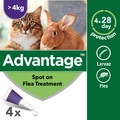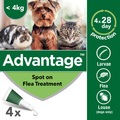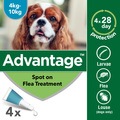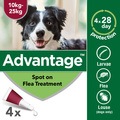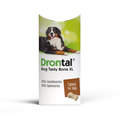 Dog ownership comes with many joys; vets bills aren't one of them. Pet insurance is typically your best defence against the potentially high cost of caring for your faithful friend's health, as it will usually act as a buffer against high bills - though exactly how much of a buffer it provides will depend on the policy you take out.
Dog ownership comes with many joys; vets bills aren't one of them. Pet insurance is typically your best defence against the potentially high cost of caring for your faithful friend's health, as it will usually act as a buffer against high bills - though exactly how much of a buffer it provides will depend on the policy you take out.
There is a lot to consider when choosing a pet insurance plan for your dog, and the choices you make can have a big impact on how much you end up paying over the course of your pet's lifetime. Of course, in some cases, this also dictates how much care you can offer to your pooch if he falls ill.
To help get you started, here are some top tips on choosing the right plan for your dog.
Don't automatically choose the cheapest policy
The first thing to remember is not to be swayed by price - or at least not to let it be the main factor in your decision. As a general rule, cheaper policies provide less protection than more expensive ones, which means you may end up shelling out more (either in the form of excess or bills you have to take care of yourself once you have reached your maximum cover limit) if you pet becomes sick or gets injured.
Similarly, choosing the policy that covers the highest vets bills isn't necessarily the best option either. You need to consider a variety of factors to make sure that, over the years, you do not end up paying over the odds.
Insure your dog as soon as you can
One of the best tips is to insure your pet as early in its life as you can. This is because many insurance companies won't cover costs associated with any pre-existing illness, and the younger your dog is, the less likely he is to have developed something like this.
It is also common for insurers to refuse to take out new policies on animals older than eight or nine (though this varies from one provider to the next). However, if you have insured your pet from a young age, your provider should offer to keep renewing it even after your pet has passed this age.
Check how vets' bills will be claimed
Different insurers pay your vets' bills in different ways, and it's important to understand which would suit you best before picking your policy. The main options are:
Per year
If you choose a 'per year' policy, your insurer is agreeing to pay a set amount towards your vets' bills per year. Once that limit is reached, you will need to cover the costs yourselves until the next year of your policy begins.
Per condition
This is similar to the above, with the key difference being that your provider will provide a set sum per condition within the policy year.
Per condition (no time limit)
These policies will cover the cost of conditions requiring treatment on a rolling basis, making them good for dealing with long-term illnesses.
Check exclusions and excess
As with any kind of insurance, pet insurance comes with a lot of small print, which you need to read really carefully to make sure you understand exactly what is and isn't covered, and under what conditions. Pay particular attention to any exclusions and consider carefully whether you are happy to forego protection for these.
Also take time to familiarise yourself with the excess. This means how much you will need to pay before your vet begins to help cover costs. For instance, if your visit to the vet costs £100 and you have an excess of £60, you will need to pay £60 towards the bill, and your insurer will pay the remaining £40.
Think about what extras you may need
Many dog insurance policies will offer more than just cover for illnesses or accidents, so it's well worth taking a look at the various options. One of the most worthwhile extras, which is included in a lot of policies as standard, is third party liability, which means that if you dog hurts or otherwise causes a nuisance to anyone, you will be shielded from at least part of the resulting costs.
Cover for the costs of advertising if your pet is lost is another option worth considering, as this can run into several thousand pounds, as is holiday cover, which will protect you if you have to cancel your holiday due to pet illness.
Written by: Hannah

